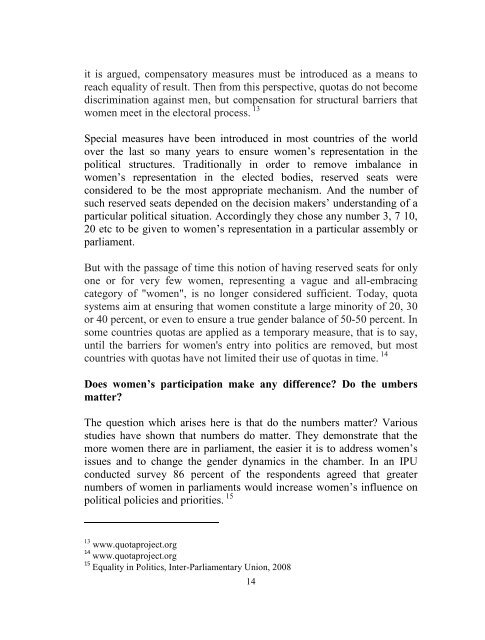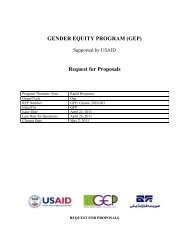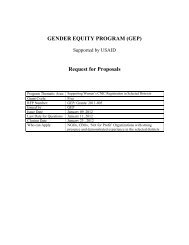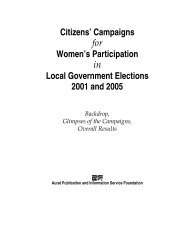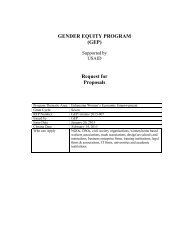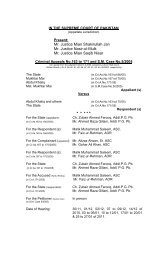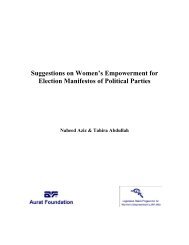Legislative Quotas for Women: A global and ... - Aurat Foundation
Legislative Quotas for Women: A global and ... - Aurat Foundation
Legislative Quotas for Women: A global and ... - Aurat Foundation
- No tags were found...
You also want an ePaper? Increase the reach of your titles
YUMPU automatically turns print PDFs into web optimized ePapers that Google loves.
it is argued, compensatory measures must be introduced as a means toreach equality of result. Then from this perspective, quotas do not becomediscrimination against men, but compensation <strong>for</strong> structural barriers thatwomen meet in the electoral process. 13Special measures have been introduced in most countries of the worldover the last so many years to ensure women’s representation in thepolitical structures. Traditionally in order to remove imbalance inwomen’s representation in the elected bodies, reserved seats wereconsidered to be the most appropriate mechanism. And the number ofsuch reserved seats depended on the decision makers’ underst<strong>and</strong>ing of aparticular political situation. Accordingly they chose any number 3, 7 10,20 etc to be given to women’s representation in a particular assembly orparliament.But with the passage of time this notion of having reserved seats <strong>for</strong> onlyone or <strong>for</strong> very few women, representing a vague <strong>and</strong> all-embracingcategory of "women", is no longer considered sufficient. Today, quotasystems aim at ensuring that women constitute a large minority of 20, 30or 40 percent, or even to ensure a true gender balance of 50-50 percent. Insome countries quotas are applied as a temporary measure, that is to say,until the barriers <strong>for</strong> women's entry into politics are removed, but mostcountries with quotas have not limited their use of quotas in time. 14Does women’s participation make any difference? Do the umbersmatter?The question which arises here is that do the numbers matter? Variousstudies have shown that numbers do matter. They demonstrate that themore women there are in parliament, the easier it is to address women’sissues <strong>and</strong> to change the gender dynamics in the chamber. In an IPUconducted survey 86 percent of the respondents agreed that greaternumbers of women in parliaments would increase women’s influence onpolitical policies <strong>and</strong> priorities. 1513 www.quotaproject.org14 www.quotaproject.org15 Equality in Politics, Inter-Parliamentary Union, 200814


